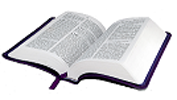Is Cremation Christian?
By: E.T. Springett Moxham
Conscious of the nearness of the awe-inspiring events which will accompany the second Advent of our Lord and Saviour Jesus Christ, many of our readers have been questioning or examining many their basic beliefs and there has been a marked increase in the letters we receive from those seeking elucidation or guidance.
To meet the request for an authoritative view of cremation, we draw our reader’s attention to the following article by a distinguished Christian Israelite which was first published in 1964. We have seen no published texts which endorse the practice of cremation for God’s People.
Cremation is a subject which produces a steady stream of inquiries and the question that is Invariab1y asked is: “Has God spoken on the subject, and if so , what has the Bible to say about it? The answer is that He has and that we can learn much from both the old and the New Testaments.
The burning of a dead person was never the custom in Israel. Indeed, it was restricted to, and enjoined by the law of God only if a man took a wife and her mother or if a Priest's daughter was guilty of unchastely (Leviticus 20:14; 21:9). In no other case, save that of Saul and his sons. I Samuel 31:12-13) were bodies burned and even then their bones were interred and exhumed for solemn entombment (II Samuel 21:12-15).
The Bible shows that in all cases the people of Israel buried their dead and so it was in New Testament days also. Even although Lazarus had been dead for four days and his body was emitting a most unpleasant and offensive smell, our Lord did not suggest to Martha that it would have been more hygienic to have burnt him! Indeed He was quick to take advantage of the situation to teach the resurrection of the dead and to prove that He possessed Divine authority and power to raise the dead.
It was most important as earlier He had declared this power and authored to be His (John 3:24,29).
So far as Saul and the princes were concerned, one authority says that the Chaldee interpret the words relating to the act of the men of Jabesh-Gilead as referring to the solemn blunting of spices, a ceremony which was afterwards performed at the burial of some of the kings of Judah (II Chronicles 16:21. Jeremiah 34). However, the language used in these cases is different. In the case before us it is expressly stated that they “burnt them.” Therefore they must have had good reason for departing from their customary practice.
The circumstances were exceptional and are made clear by the nature of the preceding event. The bodies had been horribly mutilated and left exposed for some days to the air and the flesh was, no doubt, in a state of putrefaction. Here, however, the flesh only was burned, whilst the bones were reverently and lovingly preserved and laid to rest beneath the friendly shade of the great tamarisk tree of Jabesh.
The men of Jabesh-Gilead may well have known Saul's fondness for trees (I Samuel 22:6) and under the waving branches of their own beautiful and famous tamarisk tree they would have tenderly laid their dead hero and his princely sons. Subsequently King David removed these royal remains and reverently interred them in the family grave (II Samuel 21: 12-14).
In Amos 2 we read:
"Thus saith the Lord, for three transgressions of Moab, and for four, I will not turn away the punishment thereof. Because he burned the bones of the King of Edom into lime; But I will send a fire upon Moab, and it shall devour the places of Kirioth; and Moab shall die with tumult ... and I will cut off the judge from the midst thereof and will slay all the princes there of with him, saith the Lord."
If the public knew that the foregoing was in the Bible many people would never even contemplate being cremated nor of having anyone else cremated: no one would care to take the responsibility. These facts, together with the New Testament teaching regarding one's body, presents the Divine point of view in terms so simple that even a child can understand them. As to those who have had relatives and friends cremated quite innocently there is little doubt that the Lord will make due allowances for those who have acted in ignorance.
Burial or entombment is part of the Divine order of this life and it provides an essential part of the teaching of the Resurrection as set forth by our Lord in John 5, but what is of even greater importance is the fact that one's body is the temple of the Holy Spirit! The Bible says, "What? Know ye not that your body is the temple of the Holy Spirit which is in you? Which ye have of God? And ye are not your own. for ye are bought with a price. Therefore, glorify God in your body, and in your spirit, which are God's." (I Corinthians 6:19-20 and 3:16).

